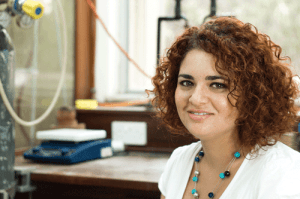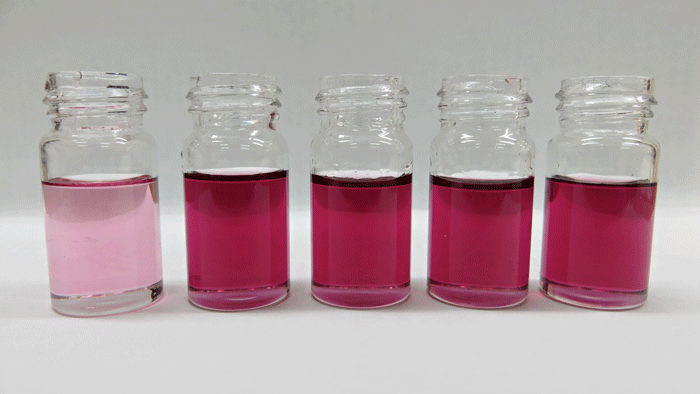Written by Kristina Farrugia

In medicine a timely and accurate diagnosis can decide the chances of survival of a patient. Supramolecular Chemistry is a field that explores the design of intelligent molecules that can assist doctors when taking lifesaving decisions. These intelligent molecules can identify the type and amount of proteins in a patient’s blood or tissue that would indicate disease—in a similar method to blood glucose test strips.
Kristina Farrugia (supervised by Dr David C. Magri) recently designed a series of eight novel intelligent molecules based on the thiourea (structurally similar to urea) unit. They were tested for their ability to detect inorganic anions involved in key biological processes such as fluoride, chloride, acetate, and phosphate. A drastic colour change visible to the naked eye signalled the successful interaction of the anions with the sensing molecules.
The colour changes were accurately observed by the techniques called UV-visible absorption and 2D 1H NMR titration spectrometry. They determined that the mechanism of anion detection was due to the deprotonation of the sensor molecules, through an acid-base reaction. This major finding goes contrary to previous research, where anions are reported to interact with the sensor molecules through complexation. Knowing a molecule’s mechanism of action is important since it will limit how these sensors can be used in patient diagnosis.
The molecules synthesised by Farrugia can serve as the basis for more complex systems. Supramolecular chemistry shows how chemistry can play a key role in the medicine of tomorrow.
This research was performed as part of Master of Science in Chemistry at the Faculty of Science, University of Malta. It is partly funded by STEPS (the Strategic Educational Pathways Scholarship—Malta). This scholarship is part-financed by the European Union—European Social Fund (ESF) under Operational Programme II—Cohesion Policy 2007-2013, ‘Empowering People for More Jobs and a Better Quality of Life’.





Comments are closed for this article!